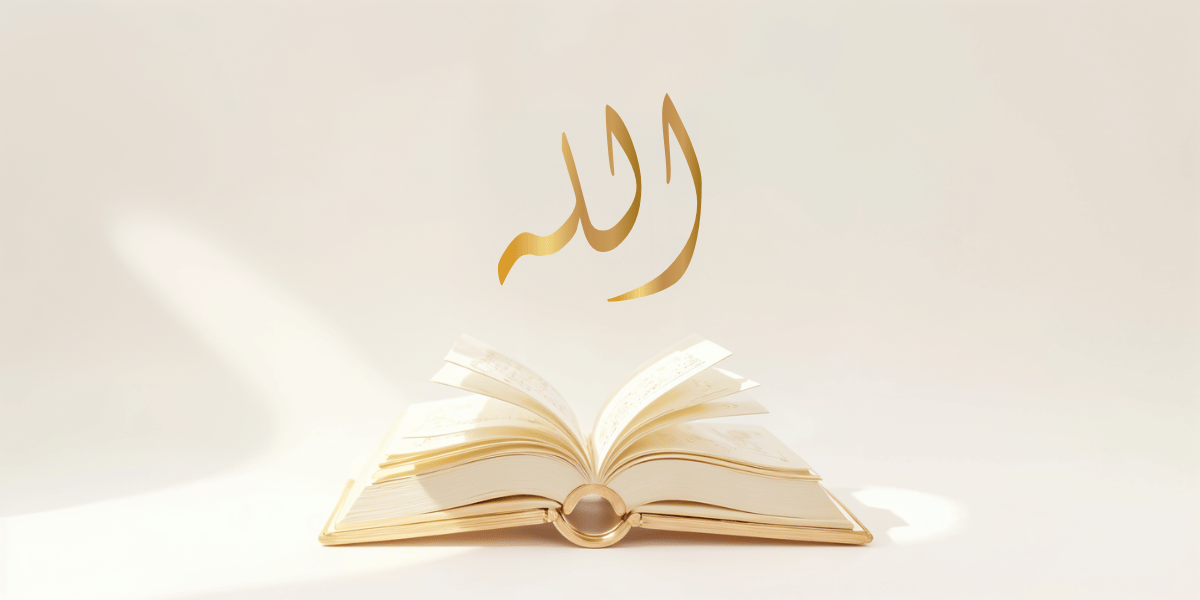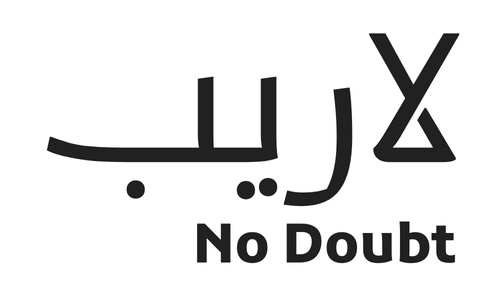Tawhid: Understanding the Core of Islamic Belief in Allah
بِسْمِ اللهِ الرَّحْمٰنِ الرَّحِيمِ
In the name of God, the Most Gracious, the Most Merciful.
The belief in Allah, articulated through the principle of Tawhid, is the absolute foundation of Islam. It is the unwavering conviction in the oneness of God – that He is the sole Creator, Sustainer, and the only One worthy of worship.
Tawhid is also the first and greatest of the Pillars of Iman, the six articles of faith every Muslim must hold in their heart.
The Prophet Muhammad (صلى الله عليه وسلم) said,
“Iman is to believe in Allah, His angels, His books, His messengers, and the Last Day, and to believe in divine decree, both the good and the bad thereof.”
– Sahih Muslim, Hadith 8, Book of Iman
This comprehensive guide will explore the meaning of Tawhid, its essential categories, the proofs of Allah’s existence, and how this belief transforms a person’s life from the inside out.
What is Tawhid? The Foundation of Belief in Allah
The entire message of Islam revolves around Tawhid. It is the central, non-negotiable principle that defines a Muslim’s relationship with God and the universe. Without a firm grounding in Tawhid, no act of worship is valid, and one’s faith remains incomplete.
The Linguistic and Islamic Meaning of Tawhid
Linguistically, the Arabic word Tawhid (تَوْحِيد) comes from the root word wa-ha-da, which means “to make something one” or “to assert the oneness of something.” In the Islamic context, Tawhid is the absolute and uncompromising belief in the oneness of Allah (God) in every sense. It is the declaration and affirmation that there is no deity worthy of worship except Allah, and that He is One, unique, and without partners, children, or equals.
This concept is perfectly encapsulated in the first part of the Shahadah (testimony of faith): “La ilaha illallah” – “There is no god but Allah.” This isn’t merely a statement of belief; it is a declaration that negates the worship of all false gods and affirms worship for Allah alone.
Why Tawhid is the First Pillar of Iman (Faith)
The belief in Allah is the first and most important of the six pillars of Iman (faith). The Prophet Muhammad (صلى الله عليه وسلم) said,
“Iman is to believe in Allah, His angels, His books, His messengers, and the Last Day, and to believe in divine decree, both the good and the bad thereof.”
Sahih Muslim, Hadith 8, Book of Iman
“Tawhid gives meaning and validity to all other pillars, as each presupposes the oneness of Allah.” All prophets and messengers, from Adam to Muhammad (peace be upon them all), came with this same core message: to worship Allah alone and to abandon the worship of any other being or object.
This message is also reflected in the Pillars of Islam, the essential acts that demonstrate our faith in daily life.
The Three Categories of Tawhid

The six pillars of Iman are deeply interconnected. They build upon one another to create a comprehensive worldview that provides clarity, purpose, and solace to the believer. Let’s explore each one.
Tawhid al-Rububiyyah: Oneness of Allah's Lordship
This is the belief that Allah is the one and only Lord (Rabb) of the entire universe. It means affirming that Allah alone is the:
- Creator: He created everything from nothing.
- Sustainer: He provides for and maintains everything that exists.
- Sovereign: He has absolute control and power over all of creation.
This type of Tawhid is often acknowledged even by those who do not worship Allah alone. The Quran notes that when the polytheists of Makkah.
if you ask them who created the heavens and the earth, they will definitely say, “Allah!” Say, “Praise be to Allah!” In fact, most of them do not know”
Quran 31:25 (Surah Luqman, Ayah 25)
However, this acknowledgement is insufficient on its own.
Tawhid al-Uluhiyyah: Oneness of Allah's Right to be Worshipped
This is the central message of all prophets and the primary point of distinction for a Muslim. It means singling out Allah alone for all acts of worship (‘Ibadah). It is the practical application of Tawhid al-Rububiyyah. If one believes Allah is the only Lord, it logically follows that He is the only One who deserves to be worshipped.
Acts of worship include, but are not limited to:
- Prayer (Salah)
- Supplication (Dua)
- Fasting (Sawm)
- Charity (Zakat)
- Pilgrimage (Hajj)
- Love, fear, and hope
Directing any of these acts to other than Allah is considered Shirk, the antithesis of Tawhid.
Tawhid al-Asma wa al-Sifat: Oneness of Allah's Names and Attributes
This category involves affirming all the Names and Attributes that Allah has affirmed for Himself in the Qur’an or that His Messenger (صلى الله عليه وسلم) affirmed for Him, without any distortion, denial, comparison, or delving into their “how.” We believe in them as they are, in a manner that befits His majesty.
For example, Allah describes Himself as Al-Sami’ (The All-Hearing) and Al-Basir (The All-Seeing). We affirm these attributes without comparing His hearing or seeing to that of His creation. As Allah states,
“…There is nothing like Him, for He ˹alone˺ is the All-Hearing, All-Seeing.“
Quran 42:11 (Surah Ash-Shura, Ayah 11)
This preserves the absolute uniqueness and perfection of Allah.
The Opposite of Tawhid: Understanding the Danger of Shirk

To fully grasp the importance of the belief in Allah, one must also understand its opposite: Shirk. It is the one sin that Allah has promised He will not forgive if a person dies upon it without repenting.
Defining Shirk: The Gravest Sin in Islam
Shirk is the act of associating partners with Allah in any form. This can be in His Lordship (believing someone else creates or sustains), in His right to worship (praying to or calling upon other than Allah), or in His Names and Attributes (giving a creation an attribute that belongs only to Allah).
Allah says in the Quran,
“Indeed, Allah does not forgive associating others with Him ˹in worship˺, but forgives anything else of whoever He wills. And whoever associates others with Allah has indeed committed a grave sin.“
Quran 4:48 (Surah An-Nisa, Ayah 48)
Major Shirk (Shirk al-Akbar) vs. Minor Shirk (Shirk al-Asghar)
Major Shirk: This is the most severe form. It involves directing an act of worship to someone or something other than Allah, such as praying to an idol, a saint, or an angel. This act removes a person from the fold of Islam completely.
Minor Shirk: This includes acts that may lead to Major Shirk or are described as Shirk in the texts but do not expel one from Islam. The most common example is Riya’ (showing off), which is performing an act of worship to be seen or praised by people rather than for the sake of Allah alone.
The Prophet (صلى الله عليه وسلم) warned,
“The Messenger of Allah (صلى الله عليه وسلم) said, “The thing I fear for you the most is minor shirk.” They said, “What is minor shirk, O Messenger of Allah?” He said, “Showing off (riya’)”
Musnad Ahmad, no. 23119; Ibn Majah, no. 4204; authenticated by al-Albani.
Proofs for the Existence and Oneness of Allah

The belief in Allah is not a blind faith; it is supported by innate, rational, and scriptural evidence
The Innate Proof: The Call of the Fitrah (Natural Disposition)
Every human being is born with a natural inclination (Fitrah) to acknowledge a higher power. This innate sense recognizes a Creator and turns to Him in times of absolute desperation. Even those who deny God in times of ease often find themselves calling out to Him when faced with a life-threatening crisis, proving this deep-seated, inherent belief.
The Rational Proof: Reflecting on the Universe and its Creator
The intricate design, order, and harmony of the universe point to a single, all-powerful, and all-wise Designer. From the vastness of the cosmos to the complexity of a single cell, the creation speaks of its Creator. It is irrational to assume that such a complex system came into being by chance.
As Allah asks in the Quran,
“Or were they created by nothing, or are they ˹their own˺ creators? Or did they create the heavens and the earth? In fact, they have no certainty”
Quran 52:35 (Surah At-Tur, Ayah 35 to 36)
The Scriptural Proof: Clear Verses from the Qur'an
The Qur’an is the ultimate proof. It consistently and powerfully calls to the oneness of Allah. The most concise and profound statement of Tawhid is found in Surah al-Ikhlas:
“Say, O Prophet, “He is Allah – One ˹and Indivisible˺; Allah – the Sustainer ˹needed by all˺.He has never had offspring, nor was He born. And there is none comparable to Him.“⁷
Quran 112:1–4 (Surah Al-Ikhlas, ayahs 1 to 4)
This chapter alone is a complete refutation of all forms of polytheism and anthropomorphism.
The Transformative Benefits of Tawhid in a Muslim's Life

Living by the principle of Tawhid is not just an abstract belief; it has profound, practical consequences that bring immense benefit to an individual and society.
Attaining True Freedom and Liberation from Creation
Tawhid liberates the human heart from servitude to anything other than Allah. When a person realizes that only Allah can truly benefit or harm them, they are freed from the fear of people, superstitions, and worldly attachments. Their allegiance is to the Creator, not the creation.
Finding Inner Peace, Security, and Purpose
Understanding that one’s life is in the hands of the All-Merciful, All-Wise Lord brings an unparalleled sense of tranquility (Sakinah). Anxiety about the future and regret over the past are replaced with trust in Allah’s divine plan (Tawakkul). This provides a clear purpose for life: to worship and please the One who created us.
The Key to Unity and a Just Society
Tawhid is the ultimate unifier. It establishes that all human beings are equal in their servitude to the one God, regardless of race, color, or status. This principle erodes tribalism and nationalism, laying the groundwork for a just society where legislation and guidance come from a divine, impartial source.
How to Strengthen and Nurture Your Belief in Allah

Belief (Iman) is not static; it increases with acts of obedience and decreases with sins. It requires constant nurturing.
Contemplating the Signs of Allah in Creation
Take time to reflect on the world around you – the cycle of night and day, the rain that gives life to the earth, the diversity of life.
Allah repeatedly encourages this in the Qur’an, as it reinforces the awe and majesty of the Creator.
“Indeed, in the creation of the heavens and the earth and the alternation of the night and the day are signs for those of understanding.”
Surah Aal-‘Imran (3:190).
Studying the Qur'an and the 99 Names of Allah
The best way to know Allah is through His own words and the beautiful Names He has revealed. Reading the Qur’an with translation and tafsir (commentary) connects the heart directly to its Lord. Similarly, learning and understanding the 99 Names of Allah helps one appreciate His perfection, mercy, and power, which naturally leads to a stronger belief.
Consistent Remembrance (Dhikr) and Supplication (Dua)
Dhikr (remembrance of Allah) is the polish for the heart. Consistently repeating phrases like Subhan’Allah (Glory be to Allah), Alhamdulillah (Praise be to Allah), and Allahu Akbar (Allah is the Greatest) keeps the connection with God alive. Dua (supplication) is a direct conversation with Allah, reinforcing one’s reliance on Him for all needs and strengthening the bond of servitude.
Furthermore, fasting is an act of worship that purifies the heart and connects us to Allah. To learn about one of the most virtuous days for fasting, see our guide to the Day of Ashura.
And the first ten days of Dhul Hijjah are among the best times for increasing acts of worship. Find out how to maximise your deeds during this blessed period in our guide to the ten days of Dhul Hijjah.
Download Your Checklist
We have put the essentials on one clear page – fast, pray, dhikr, charity, for you to print or save on your phone.
Frequently Asked Questions - Belief in Allah
1. What is the most important belief in Islam?
The most important belief in Islam is Tawhid, the absolute and uncompromising belief in the oneness of Allah. It is the foundation upon which all other pillars of faith and acts of worship are built.
2. What are the three types of Tawhid?
Scholars have categorized Tawhid into three interconnected types to facilitate understanding:
- Tawhid al-Rububiyyah: Affirming Allah as the sole Creator, Sustainer, and Sovereign.
- Tawhid al-Uluhiyyah: Singling out Allah alone for all acts of worship.
- Tawhid al-Asma wa al-Sifat: Believing in Allah’s Names and Attributes as they are described in the Qur’an and Sunnah, without distortion or comparison.
3. What is the difference between Tawhid and Shirk?
Tawhid is the belief in the absolute oneness of Allah, while Shirk is its direct opposite. Shirk is the act of associating partners with Allah, whether by believing someone else shares His Lordship, directing worship to other than Him, or giving His attributes to creation. Tawhid is the greatest virtue, and Shirk is the gravest sin.
4. Is it a sin to show off good deeds?
Yes, showing off righteous deeds to gain praise from people is a form of Minor Shirk called Riya’. While it does not remove a person from Islam, it is a serious sin that can nullify the reward for that deed and corrupt one’s intention.
5. Is Allah the same as God?
Yes. “Allah” is the proper name for God in the Arabic language. It is used by Arabic-speaking Christians and Jews as well as Muslims. The name is unique because it has no plural or gender, reflecting the pure monotheism of Islam. When Muslims say “Allah,” they are referring to the same One God worshipped by Adam, Abraham, Moses, and Jesus.
6. How can someone prove Allah exists?
The belief in Allah is supported by multiple forms of evidence: the innate human disposition (Fitrah) to recognize a Creator, the rational evidence of design and purpose in the universe, and the clear scriptural evidence from the Qur’an and previous revelations.
7. What is the meaning of 'La ilaha illallah'?
“La ilaha illallah” means “There is no deity worthy of worship except Allah.” It is a statement of both negation and affirmation. It negates the right of any created being or object to be worshipped and affirms that right for Allah alone.
8. Can a Muslim's belief (Iman) increase or decrease?
Yes, according to mainstream Islamic belief, Iman is not static. It increases with acts of obedience, knowledge, and reflection, and it can decrease with sins and heedlessness. This is why it is essential to constantly work on strengthening one’s belief.
9. How can I explain Tawhid to a child?
You can explain Tawhid simply by pointing to creation. For example, you can say: “Allah made the sun, the moon, and the trees. He made you and me. He is the only One who can do all of this, so we should only say thank you (pray) to Him.” Using stories of the prophets, like Prophet Ibrahim (peace be upon him) questioning the stars, is also very effective.
10. Why is Tawhid al-Uluhiyyah considered the main point of contention?
Because this is the practical application of belief. Many cultures throughout history acknowledged a Supreme Creator (Tawhid al-Rububiyyah) but failed by directing their worship to intermediaries like idols, saints, or spirits. The core message of all prophets was to correct this by calling people to worship the Creator directly and alone.

